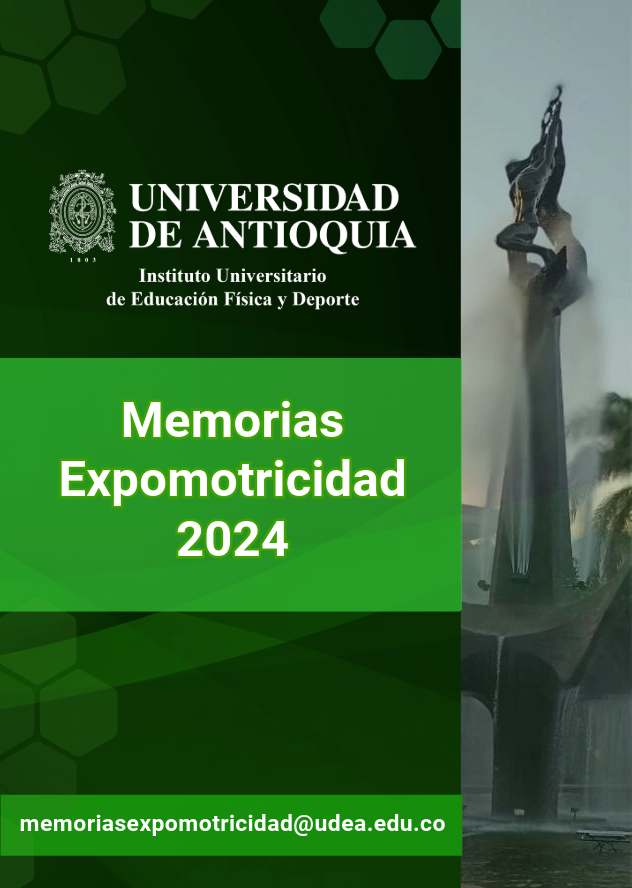Education for well-being: leisure as a paradigm for transforming schooling
Keywords:
school welfare, school leisure, educational subjectivitiesAbstract
Leisure, free time and the well-being are social facts that influence other phenomena, such as education, and to understand them from the perspective of social agents it is necessary to draw from experiences. This study analyzes school leisure as a social representation of the students of the Juan Bautista Migani educational institution in Florencia, Caquetá, to transform education for well-being from this perspective, with the contribution of educational subjectivities necessary to construct and consolidate the paradigm of leisure in school, whose development is still in its infancy. This study is based on the interpretive paradigm, supported in symbolic interactionism and with a qualitative approach. The selection and participation was intentional and focused on high school students, teachers, principals, and parents, through instruments that favor social and dialogical interaction. The first stage consists of a desk analysis that demonstrates a welfareist approach to welfare and the absence of leisure as a potential of well-being factor in schools, in accordance with regulations. An incipient and purely operational treatment is also recognized among the research intentions. In the second part, the differences between the educational actors are developed according to the subjectivities that revolve around leisure and it is affirmed that it is a concept that is diluted in practice and that it has been excluded from school management, in which families do not participate. Well-being is an issue that is much more distributed across generational boundaries and the management of the community life of the school. From this new perspective, leisure and well-being are conceived as an intra-, inter- and multi-population paradigm within the experience of perceived well-being.
Downloads
References
1. Alvarado, J., Ramos, R., Ramírez, J., y Muñoz, T. (2021). Symbolic Interactionism and Its Study Representation in Concomitant Emotional Faces in the Face of Perinatal Grief. ECORFAN Journal-Republic of El Salvador, 7(12), 31-41. https://www.ecorfan.org/republicofelsalvador/journal/vol7num12/ECORFAN_Journal_Salvador_V7_N12_3.pdf
2. Álvarez Muñoz, J. S., y Hernández Prados, M. A. (2017). El ocio en los centros escolares. En J. A. Lera Mejía (Org.), II Congreso online sobre Desigualdad Social, Económica y Educativa en el Siglo XXI (pp. 134-144). https://acortar.link/PR6Ima
3. Arévalo Martínez, R. I., y García Mayo, G. (2022). Representaciones sociales, interaccionismo simbólico y comunicación interpersonal en el ámbito del comercio móvil. Chasqui. Revista Latinoamericana de Comunicación, (151), 195-212. https://doi.org/10.16921/chasqui.v1i151.4720
4. Cardona Ortiz, G. A. (2022). Ocio y bienestar: revisión desde el contexto escolar y sus desafíos. En G. A. Cardona Ortiz, y L. A. Jara Andrade (Eds.), Bienestar en la escuela: investigaciones y reflexiones sobre ocio, currículo e inclusión (pp. 111-126). Editorial Kinesis
5. Cardona Ortiz, G. A. (2023). El bienestar situado: comprensión, gestión e interacción simbólica del ocio en la escuela. Revista Oratores, 17(19), 114-128. https://doi.org/10.37594/oratores.n19.1181
6. Contreras, L. M. (2011). Tendencias de los paradigmas de investigación en educación. Investigación y Postgrado, 26(2) 179-202. https://dialnet.unirioja.es/servlet/articulo?codigo=5330858
7. Garcés, Y., Santana, L., Feliciano, L. y Alonso, E. (2014). Proyectos de vida: la importancia de educar en emociones y habilidades sociales. En S. Orejudo, F. Royo, J. Soler, y L. Aparicio (Coords.), Inteligencia emocional y bienestar. Reflexiones, experiencias profesionales e investigaciones (pp. 728-742). Universidad de Zaragoza. https://dialnet.unirioja.es/servlet/libro?codigo=853413
8. Hué, C. (2016). Inteligencia emocional y bienestar. En J. L. Soler Nages, L. Aparicio Moreno, O. Díaz Chica, E. Escolano Pérez, y A. Rodríguez Martínez (Coords.), Inteligencia emocional y bienestar II. Reflexiones, experiencias profesionales e investigaciones (pp. 32-44) Universidad San Jorge Ediciones. https://www.ub.edu/grop/wp-content/uploads/2014/03/ELIA-ZARAGOZA-2015-1.pdf
9. López, B., Fernández, O., y Ramos, E. (2014). La inteligencia emocional en la adolescencia: la competencia comunicativa y el autoconcepto. En S. Orejudo, F. Royo, J. Soler, y L. Aparicio (Coords.), Inteligencia emocional y bienestar. Reflexiones, experiencias profesionales e investigaciones (pp. 776-782). Universidad de Zaragoza.
Downloads
Published
How to Cite
Issue
Section
License
Copyright (c) 2024 Gustavo Adolfo Cardona Ortiz

This work is licensed under a Creative Commons Attribution-NonCommercial-ShareAlike 4.0 International License.




